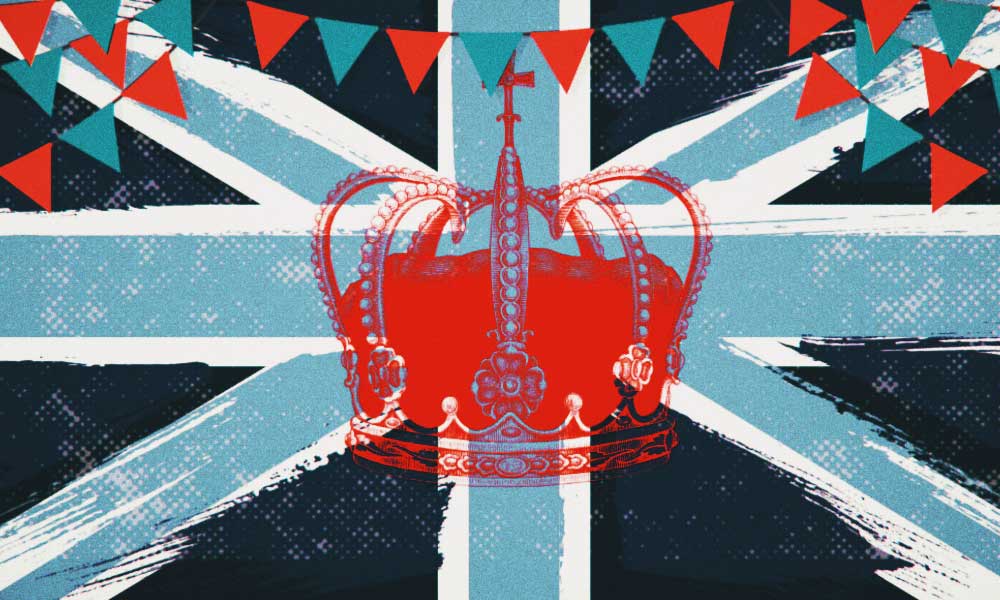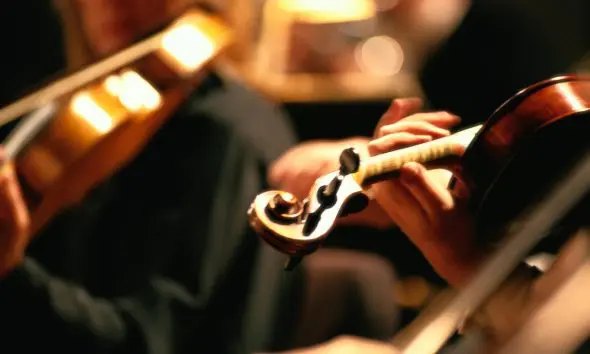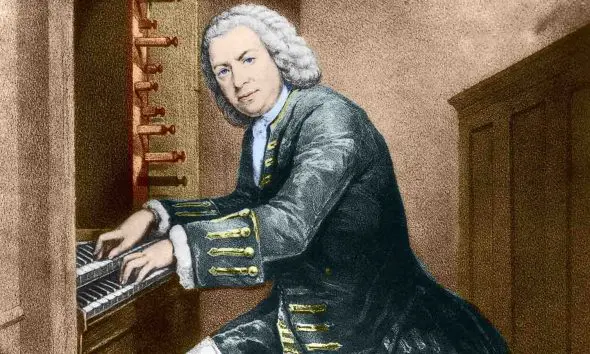Best Classical Music For The Platinum Jubilee
Discover our selection of the best classical music to celebrate the Queen’s Platinum Jubilee featuring 20 majestic masterpieces.

Much memorable music has been written for royal occasions, composed specially for the monarch, or inspired by patriotic fervour. Music is at the heart of the coronation service, the ceremony that anoints and crowns the monarch and which we last saw enacted in all its solemn magnificence an extraordinary 70 years ago. We’ve chosen a selection of music that not only reflects the life and interests of our sovereign and the country over which she reigns but also contains some of the musical highlights – both familiar and forgotten – from the 1953 Coronation Service. Scroll down to discover the best classical music to celebrate the Queen’s Platinum Jubilee. Vivat Regina Elizabetha!
Best Classical Music For The Platinum Jubilee: Top 20 Pieces
20: Youth Of Britain March – The Princess Elizabeth – Coates
Eric Coates, the ‘King of Light Music’, best known for his Dam Busters March and By The Sleepy Lagoon (signature tune for Desert Island Discs) wrote a three movement suite in the early 1940s depicting the three regal Elizabeths in our island’s history: ‘Halcyon Days’ represented Elizabeth I, ‘Springtime in Angus’, The Queen Mother, and ‘Youth of Britain – The Princess Elizabeth’. So pleased was Coates with the work that he wrote to Buckingham Palace asking if Queen Elizabeth (wife of George VI) would accept the dedication – which she did. He recorded it a few months later.
19: I Vow To Thee My Country – Holst
On her 21st birthday in 1947, Princess Elizabeth made a famous broadcast in which she declared, “Before you all that my whole life whether it be long or short shall be devoted to your service and the service of our great imperial family to which we all belong.” The words of this much-loved hymn, one of the best pieces of classical music for the Platinum Jubilee, echo her vow. They were written by the diplomat Sir Cecil Spring Rice before the First World War. When Gustav Holst was asked to set them to music, overworked as he was at the time, he was relieved to find that they fitted the big tune from ‘Jupiter’, fourth movement of this suite The Planets. For the hymn, he renamed the tune ‘Thaxted’ after the Essex town in which he lived for a while.
18: A Musical Joke – Mozart
Her Majesty the Queen is not known for her love of classical music. Her love of horses is another thing altogether – and the theme tune to the Horse of the Year Show is one that is doubtless all too familiar to her. It is the final (fourth) movement of Mozart’s Divertimento for two horns and string quartet, better known as his Musical Joke K. 522 – though the original German title, Ein Musikalischer Spass, is more accurately translated as ‘Some Musical Fun’.
17: Land Of The Mountain And The Flood – MacCunn
The archetypal Scottish overture takes its title from a line in Sir Walter Scott’s poem The Lay of the Minstrel, and is an unashamedly romantic tonal portrait of the Scottish landscape. You can almost smell the heather! It was composed in 1887 by Scottish composer Hamish MacCunn (1868-1916) and is, by some distance, his most famous work.
16: Concert Fantasia On A Welsh March (Men of Harlech) – Best
W T Best (1826-97) was the doyen of British concert organists. For 40 years he was organist of St George’s Hall, Liverpool, playing some 100 recitals a year. His repertoire is said to have comprised over 5000 works. This thrilling arrangement is typical of the fare which had audiences flocking to hear him, recorded by today’s leading British virtuoso Thomas Trotter.
15: West Country Fantasy – Trad. arr. Langford
Does anything evoke Her Majesty’s realm of England and the English countryside more immediately and vividly than the sound of a brass band? Composer and arranger Gordon Langford who died in 2017 put together this selection of traditional folk tunes in what has become a popular concert item for brass players.
14: Gloriana – Britten
Gloriana is an opera in three acts by Benjamin Britten to a libretto by William Plomer, based on Lytton Strachey’s 1928 Elizabeth and Essex: A Tragic History. The first performance was presented at the Royal Opera House, London, in 1953 just six days after the coronation of Queen Elizabeth II. It depicts the relationship between Queen Elizabeth 1 and the Earl of Essex, ‘Gloriana’ being the name given by the 16th century poet Edmund Spenser to the character representing the Queen in his epic poem The Faerie Queene.
13: Coronation Gloria – Stanford
The Irish-born composer Sir Charles Villiers Stanford set the words of the Gloria for the coronation of King George V in 1911. The music was performed again for the 1937 coronation and at Elizabeth II’s in 1953. Grandly ceremonial and vigorous in its outer sections, there’s a more delicate central part sometimes taken by a solo soprano.
12: Coronation Te Deum – Walton
The Te Deum is sung towards the end of the coronation service. The four coronations of the 20th century produced four fine settings of this text: Stanford (1902), Parry (1911), Vaughan Williams (1937) and, most spectacular of all Sir William Walton (1953). “I’ve got cracking on the Te Deum,” he wrote. “Lots of countertenors and little boys Holy-holying, not to mention all the Queen’s Trumpeters and Side drummers. There is an important and indispensable organ part. I think it’s all going to be rather splendid.” So it is!
11: Music For The Royal Fireworks – Handel
If you thought monster concerts in Hyde Park were a recent invention, think again! George II commissioned Handel to write a suite of celebratory music to be played alfresco as part of a huge entertainment in Green Park, London, on 27 April 1749. Twelve thousand people attended the rehearsals alone and many more the event itself. Though the firework display didn’t go according to plan (a Catherine wheel ignited the specially-built Temple of Peace and caused total panic), the music – an overture and five short movements – was a triumph.
10: Thou Wilt Keep Him In Perfect Peace – S S Wesley
As the Lords Spiritual and Temporal pay their homage to the new monarch in the coronation service, a sequence of anthem is sung: Rejoice in the Lord Alway (by Anon.), I Will Not Leave You Comfortless (Byrd), O Clap Your Hands (Gibbons) and finally Wesley’s much-loved setting of words from both Old and New Testaments, composed in about 1850.
9: RAF March Past – Walford Davies
Henry Walford Davies (1869-1941) is perhaps best known for his magical sung prayer God Be in My Head. But during the latter part of the First World War he was the Royal Air Force’s Director of Music and in 1919 composed the RAF’s famous march. At least – he composed the quick march part. The slower central section (known as the Trio) was penned by Sir George Dyson.
8: A Life On The Ocean Wave – Russell
The jaunty regimental march of the Royal Marines is heard at every Trooping the Colour. The music was written by the extraordinary Henry Russell (1812 or 1813 – 1900), an English pianist, baritone singer, composer, and the natural father of the great conductor Sir Landon Ronald. In 1847 when in New York he was shown the words of A Life on the Ocean Wave a poem by his friend, the poet and playwright Epes Sargent (1813-1880) who had been inspired while walking in Battery Park. Russell went to the piano and almost immediately put the words to music. The song became popular in both England and America.
7: March: The British Grenadiers – Trad.
The origin of one of the oldest and best-known military marches, and one of the best pieces of classical music for the Platinum Jubilee, is disputed but can be traced back to the early 17th century. It is the regimental quick march of many British, Australian and Canadian units and is regularly played as part of the Trooping the Colour ceremony. The first printed version of the music appeared in 1706, the lyrics sung to the tune (‘Some talk of Alexander and some of Hercules…’) were published sometime between 1735 and 1750.
6: Imperial March – Elgar
The earliest orchestral march from Elgar’s pen was written to celebrate Queen Victoria’s Diamond Jubilee in 1897, first performed at the Crystal Palace in April of that year. When it was repeated at the Royal Garden Party, the Queen was so touched by it that she commanded its inclusion in the official State Concert in July. The Imperial March is also well known in an arrangement for organ by Sir George Martin (not The Beatles man but the then organist of St Paul’s Cathedral).
5: Orb And Sceptre – Walton
Sir William’s second coronation march (see the better-known No. 3 below) is equally uplifting as his first, with the same Pomp and Circumstance pattern and a stately Elgarian Trio section transformed into a memorable maestoso finale. This was heard as part of the orchestral music before the start of the 1953 service but which, like its predecessor, had had its first outing some months beforehand at a recording session.
4: Zadok The Priest – Handel
Handel composed four anthems for the coronation of George II at Westminster Abbey. Zadok the Priest, one of the best pieces of classical music to celebrate the Platinum Jubilee, has been heard at every coronation since, sung during the anointing of the sovereign. Its magnificent opening never fails to send a shiver up the spine. The words come from the First Book of Kings: ‘Zadok the priest and Nathan the prophet … anointed Solomon king’. Zadok? He was a descendant of Aaron and a priest under King David and Solomon.
3: Crown Imperial – Walton
The BBC commissioned this march in November 1936 for the crowning of Edward VIII. In the event, of course, it was played at the coronation of his brother, George VI, accompanying the entrance of the Queen Mother (Queen Mary) into the Abbey. Its similarities to Elgar’s Pomp and Circumstance Marches are obvious with a poignant middle section reprised in a different key to provide the exhilarating ending. Whether in its orchestral garb or as an organ solo, it’s a spine-tingler.
2: I Was Glad – Parry
One of the greatest of all choral anthems, I Was Glad, is an exultant setting of Psalm 122 (verses 1 – 3, 6 & 7) and composed in 1902 for the coronation of Edward VII. It has been heard at every coronation since. The imperial splendour of the outer sections is contrasted by the quieter central ‘O Pray for the Peace of Jerusalem’. Just before this, interpolated into the score, come the shouted acclamations of ‘Vivat Rex!’ or ‘Vivat Regina!’ (‘Long Live the King!’ or ‘Long Live the Queen!’) which have traditionally greeted the entrance of the sovereign ever since the coronation of King James II in 1685.
1: Land Of Hope And Glory – Elgar
The UK’s second national anthem, and one of the best pieces of classical music for the Platinum Jubilee, is the middle section (the Trio) of Pomp and Circumstance March No. 1 composed in 1901. Elgar knew he had a winner the moment he wrote it (“I’ve got a tune that will knock ‘em dead – knock ‘em flat,” he wrote to a friend). The words are by Elgar’s friend Arthur C. Benson, Master of Magdelene College, Cambridge, and brother of E. F. Benson, author of the Mapp and Lucia novels (their father became Archbishop of Canterbury). They were added a year after the premiere of the March when Elgar used the same melody to end his Coronation Ode, composed for the accession of Edward VII.
Listen to Crown Imperial: The Ultimate Classical Celebration on Spotify.




